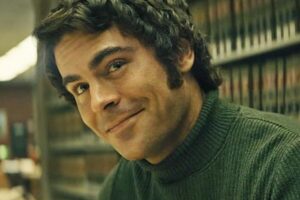Court of Appeals – Oral Argument Archive
Recording:
http://www.courts.state.ny.us/ctapps/arguments/2020/Jun20/Video/31.html
Tuesday, June 02, 2020 12:11
Based on this argument, the question being brought to the court is whether or not the actions taken against “Paul H. Sender”, due to his hostile words that were deemed “problematic”, when it comes to referring to someone inappropriately based on their gender, identification and so forth, were fair. It is argued that Mr. Senzer while he sent certain emails, which though he thought was private, decisions in this matter, did not necessarily reflect on his entire career as a judge. They confounded by arguing that Mr. Senzer, though his reasoning was weak, had no ill, or monetary, will, which is came to his comments. These arguments were continued based off of the positive aspects of the judge serving on the court. It’s overall argument is concluded by saying though the judge made these comments, he sincerely regrets them, and considers the council’s decision to remove him from the bench did not quite fit well in accordance to the basis of dismissal. On the other hand, those opposing the judge in discussion, argued that the words used, “reduced a woman, a female professional, which is a thing that is rarely done when talking to a male.” They continued to say that, “any language, over a period of time, that denigrates the court system as a whole, is problematic.” These individuals concluded by saying the occasional use of terms in question is not what’s being reflected in the case, but rather the use of these terms overtime by someone bestowed with these honorable duties, was wrong and the decision for removal was well warranted due to the knowledge that these comments were wrong, the overtime use of these languages, and inability to be sensitive and aware towards the individuals (victims) in question. Also, it argued that the judge, is able to commit such actions, could easily make decision that could be seen as a reflection of all his colleagues as well, which is not what the courts stand for.
Personally for me, I found no surprise in this case. The reason for this is because I looked at this case from a straightforward perspective. A judge, someone aware of laws, that has provided over many cases overtime, is aware of the time and place of things, even with this knowledge, if they are able to still making certain derogatory comments, are well aware of their actions, and should be punished in accordance of regulations set in place. He is grown men and I cannot see how there is even a case in the given circumstance. I do also believe that the judges defense was very contradictory. How do you go to court to defend a client, but essentially also admits the the client is wrong, what he did was he did was not right, then continue saying he had a good history as a lawyer, so all should be forgotten!? That’s what’s wrong with this system, there’s too much expectations of leniency, and abuse of individuals, especially those that are knowledgeable about these things. I feel that the opposing side of the argument conducted themselves with more candor, posture and humanity. Meanwhile the judge defense was stuttering trying to find excuse and defend someone he know deep within was wrong, but still tried to find these excuses, making his argument sound weak and made up. Therefore, with all considered, I found against the judge, side was more persuasive. Throughout this argument, I did find some difficulties due to the use of language, but was able to piece together most of it. I am assuming due to their experience on the bench and elsewhere, results in the difference with how they communicate. All in all, while this is now something I found joy in reading due to the whole point of the case, I did find it very informative.





